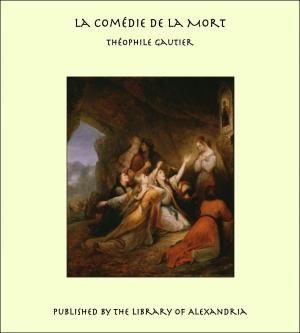The Two Great Republics: Rome and the United States
Nonfiction, Religion & Spirituality, New Age, History, Fiction & Literature| Author: | James Hamilton Lewis | ISBN: | 9781465571687 |
| Publisher: | Library of Alexandria | Publication: | March 8, 2015 |
| Imprint: | Language: | English |
| Author: | James Hamilton Lewis |
| ISBN: | 9781465571687 |
| Publisher: | Library of Alexandria |
| Publication: | March 8, 2015 |
| Imprint: | |
| Language: | English |
In this book I have proposed to compare conditions recorded in Roman history with those existing in America that should warn, by reason of the results at Rome. It is not the purpose of this volume to offer a mere textbook or a scholastic essay on historical events. It is not the purpose merely to record those events which led to the destruction of the Roman republic, and with this end our work. The main purpose of this book is to compare events as they transpired in the one republic and in the other. The political history of the Roman republic is throughout its whole course a continuous contest between radicals and conservatives. The striking resemblances between the basis of the political controversies of Ancient Rome and the modern political and economic problems render it almost impossible for any historian to approach the political history of Rome entirely free from prejudice. The bias of the historian, whether toward the liberal or the conservative side in politics, is sure to affect to a greater or less degree the pictures which he paints of the events and actors in Roman history. To indicate to some extent these varying views, and to present to the reader some of the ideas of prominent writers on Roman history, a number of extracts from the works of other authors have been inserted, as occasion demanded, in this work. In the majority of cases such an insertion should be understood as an attempt to present all sides of some controverted historical question rather than as indicating the approval by the author of the views expressed therein. In arranging the perspective of this book, its main object has been kept constantly in mind. The importance of events has been weighed from the standpoint of their effect upon the decay and collapse of the free political institutions of Rome; with the result that many subjects, to which considerable space would be devoted in a general Roman history, have been passed over with a mere notice, while other events, perhaps of less popular interest, have been treated at length. I would be false to the first sense of justice did I not here acknowledge the aid I have obtained from Professor Albert H. Putney, dean of the Webster College of Law, Chicago, and a lawyer of the state of Illinois at the city of Chicago (my home), who has been the principal contributor from whom I have received assistance, and much that can be found in this book in the nature of real historical data, and of the philosophy of reasoning from this data, is due to him, and I desire to acknowledge my indebtedness and to give full credit for the value of this work
In this book I have proposed to compare conditions recorded in Roman history with those existing in America that should warn, by reason of the results at Rome. It is not the purpose of this volume to offer a mere textbook or a scholastic essay on historical events. It is not the purpose merely to record those events which led to the destruction of the Roman republic, and with this end our work. The main purpose of this book is to compare events as they transpired in the one republic and in the other. The political history of the Roman republic is throughout its whole course a continuous contest between radicals and conservatives. The striking resemblances between the basis of the political controversies of Ancient Rome and the modern political and economic problems render it almost impossible for any historian to approach the political history of Rome entirely free from prejudice. The bias of the historian, whether toward the liberal or the conservative side in politics, is sure to affect to a greater or less degree the pictures which he paints of the events and actors in Roman history. To indicate to some extent these varying views, and to present to the reader some of the ideas of prominent writers on Roman history, a number of extracts from the works of other authors have been inserted, as occasion demanded, in this work. In the majority of cases such an insertion should be understood as an attempt to present all sides of some controverted historical question rather than as indicating the approval by the author of the views expressed therein. In arranging the perspective of this book, its main object has been kept constantly in mind. The importance of events has been weighed from the standpoint of their effect upon the decay and collapse of the free political institutions of Rome; with the result that many subjects, to which considerable space would be devoted in a general Roman history, have been passed over with a mere notice, while other events, perhaps of less popular interest, have been treated at length. I would be false to the first sense of justice did I not here acknowledge the aid I have obtained from Professor Albert H. Putney, dean of the Webster College of Law, Chicago, and a lawyer of the state of Illinois at the city of Chicago (my home), who has been the principal contributor from whom I have received assistance, and much that can be found in this book in the nature of real historical data, and of the philosophy of reasoning from this data, is due to him, and I desire to acknowledge my indebtedness and to give full credit for the value of this work















